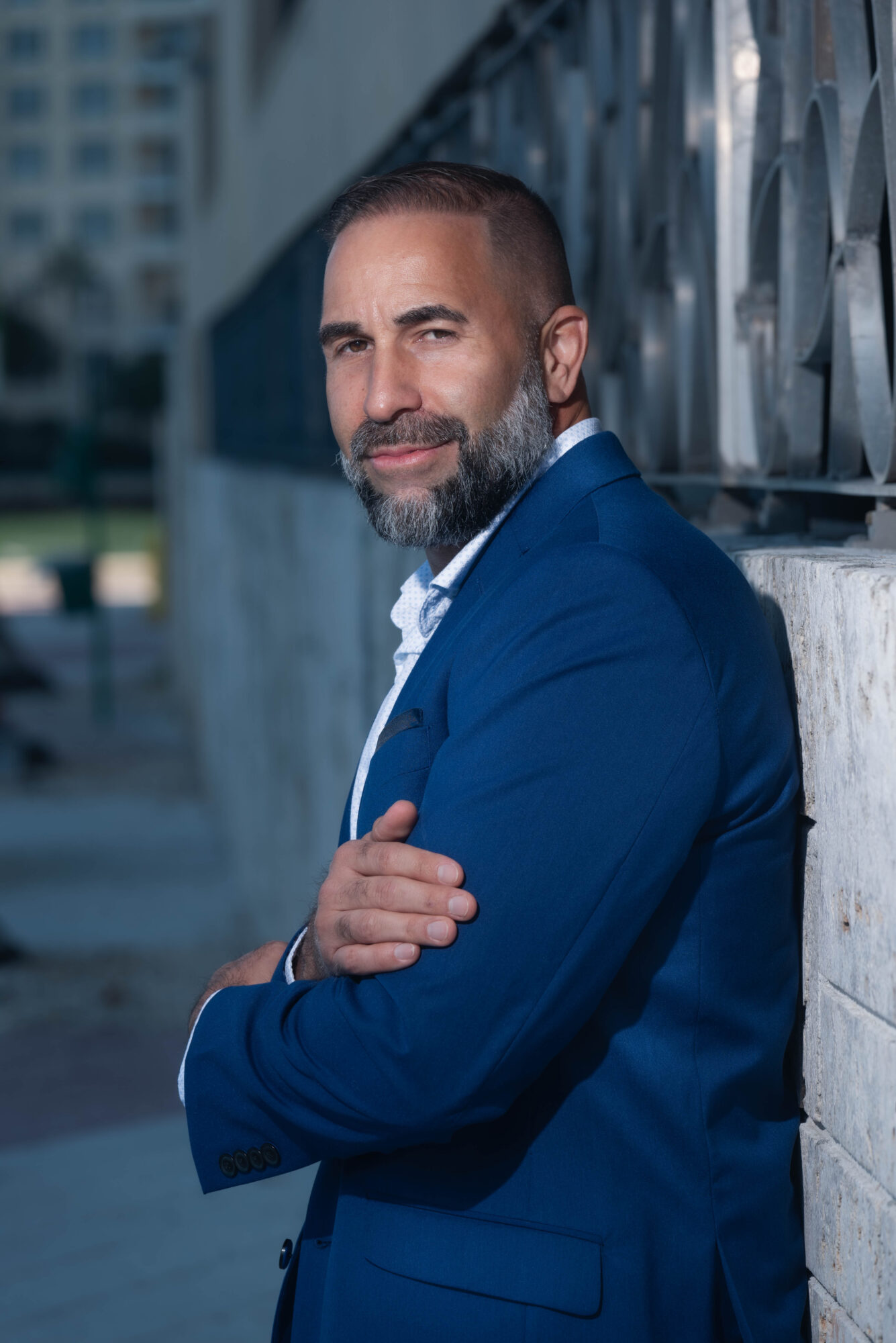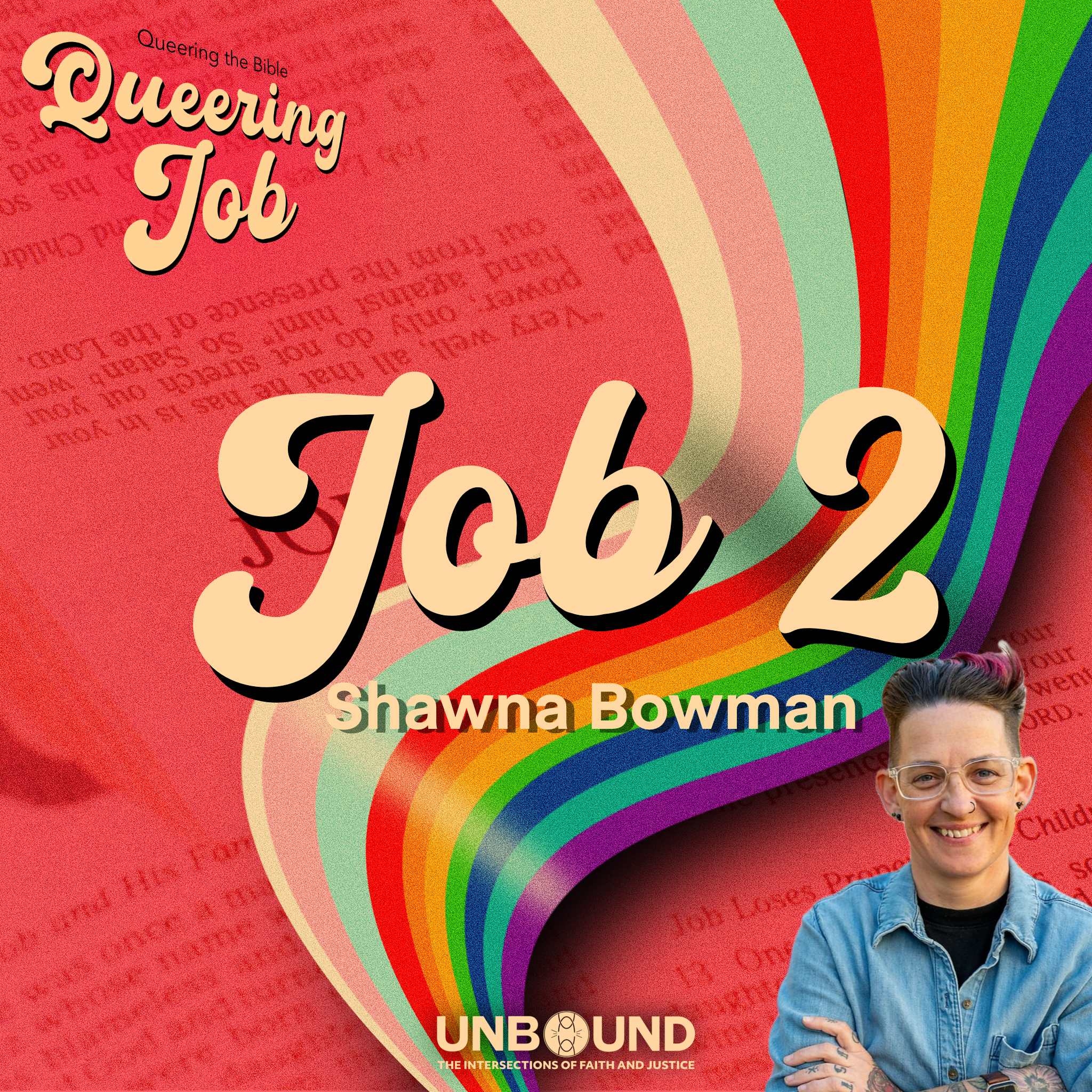And so we begin Queering Job—a journey into the pages of one of Scripture’s most haunting and powerful books, viewed through the lenses of queerness and trans experience. This series invites us to sit with the hard questions, to disrupt familiar readings, and to listen afresh to a story that is far more complicated than the pious one-liners we may have inherited.
As the first voice in this series, I offer a simple confession: I have never read the Book of Job from beginning to end. I’ve known the general outline for years—Job’s wealth, his testing, his steadfastness—but to say I’ve wrestled with its depth, its pain, its poetry? That would be stretching the truth.
Long before I became a Presbyterian minister—or even imagined I could become one—I was raised in the Free Will Baptist tradition. I’m a cradle Christian, which meant church attendance wasn’t optional, and neither was exposure to a particular kind of theological certainty. I remember our pastor quoting Job 1:21(b) with conviction: “The Lord gave, and the Lord has taken away; blessed be the name of the Lord.” That single verse was, for a long time, the extent of my relationship with this book.
But Job is far from simple. As Ken Stone notes in the Queer Bible Commentary, Job is “one of the most difficult of all biblical books to translate and interpret.” He adds that the main character, Job, “stands outside, or at the margins of, certain dominant emphases of the Hebrew canon.” That observation struck me deeply—because what is queerness, if not a living at the margins, a standing outside dominant frameworks?
I’ve now read, and re-read, the first chapter of Job several times. And every time, I find myself unsettled. Disturbed. Not just by what happens, but by how casually it happens.
At the start, Job is the picture of righteousness and privilege—he is wealthy, devout, deeply respected. He has land, livestock, a large and healthy family. He has status and security. Even God calls him “blameless.” It’s almost too good to be true. And the accuser—ha-satan—thinks so too. He doesn’t believe anyone can be truly faithful unless they’ve been tested. And so, a divine wager begins.
What follows is devastating. Job’s livestock are stolen. His servants are killed. His children die in a tragic accident. His entire world collapses in a matter of verses. He doesn’t know why. He hasn’t done anything wrong. His suffering is not punishment—it is spectacle. A test he never agreed to take.
The story is disorienting. It challenges everything we want to believe about justice, reward, and divine goodness. Job becomes unrecognizable, stripped of everything that once defined him.
Scholars have long debated this book’s place in the biblical canon. Is it a fable? A theological thought experiment? A poetic protest? What most agree on is this: Job confronts the reality of suffering—not as something we can always explain or resolve, but as something we must face with honesty and courage.
For those of us who are queer or trans, this book hits close to home. We know what it is to be watched, judged, misunderstood. We know what it is to lose community, stability, and even safety, often for reasons beyond our control. We know what it is to ask the question that pulses underneath this entire text: Why?
And yet, within this sacred and unsettling story, there is a strange kind of grace. There is permission to grieve. To rage. To question. To lament. And—perhaps most radically of all—to speak.
Queer Grief, Sacred Protest
As I sat with this first chapter of Job, particularly the moment when his world collapses without warning, my mind turned—perhaps unexpectedly—to my own coming out story.
This September will mark 30 years since I made the decision to live openly as my authentic self. I name it a bold decision now, three decades later—but back then, I couldn’t have described it that way. I was twenty years old, uncertain, afraid, and still learning how to make sense of the person I was becoming.
It was late summer. My mom and I were sitting on the front porch waiting for my father to get home from work. For reasons I still don’t fully understand, our conversation turned to homosexuality. Deep in my heart, I sensed that she already knew. She had made a few passing comments in the weeks prior that felt telling. Encouraged by a coworker who had walked his own queer journey with grace and love, I felt that it was time to be honest.
But I wasn’t prepared for what came next.
My mother’s response stunned me. I didn’t have the language or the tools to hold the weight of that moment. I was young, just beginning to understand myself, let alone defend my truth to someone I loved so deeply. My father arrived home, and at my mother’s urging, the conversation ended as quickly as it began. There were no hugs. No reassurances. No whispered “I love you no matter what.”
All I could think was, What did you just do, Danny?
I ran to my room, buried my face in my hands, and wept until there were no more tears left to cry. The air in our home grew thick in the days and weeks that followed—heavy with unspoken words, weighted silence, and a tension I couldn’t relieve. I felt as though something precious had broken, and I didn’t know how to fix it.
The relationships with some of my siblings began to shift. Except for my beloved older brother José—affectionately known as Frog—others grew more distant. My relationship with my parents became strained. And my connection to the church, once a place of comfort, began to unravel. I remember leading worship one Sunday, only to hear a parishioner mutter that the devil had entered the sanctuary—surely not referring to ha-satan from Job’s story, but to me.
Like Job, my world was turned upside down. I hadn’t committed any offense. I had simply told the truth. And like Job, I grieved. I mourned the loss of relationships, of belonging, of certainty. I asked questions. Not because I had lost my faith—but because I was holding onto it for dear life.
I could not believe that the God who created me in love would orchestrate this pain. I couldn’t imagine that the God who fashioned me in God’s own image would abandon me in my hour of need. And still, like Job, I did not curse God. I couldn’t. Because even then—especially then—I knew that coming out was not rebellion; it was revelation. It was the most natural thing in the world. I had always known I was different. And that difference had always felt like truth.
There were nights in my adolescence when I cried alone in the shower, begging God to make me “normal”—to help me be like the other boys. But the next morning, I was still me. And, in time, I came to understand that being me wasn’t a mistake. It was sacred.
I did wonder, for a season, if the pain I experienced was somehow my fault. But never—not once—did I lay blame at God’s feet. If anything, I clung to God more tightly. My prayers never stopped. My conversations with the Divine grew more urgent, more honest, more tender.
Rabbi Harold Kushner, in When Bad Things Happen to Good People, writes:
“The question we should be asking is not, ‘Why did this happen to me?’ but rather, ‘Now that this has happened, what shall I do about it?’”
That question became my turning point. Like Job, I shifted from asking “Why?” to asking, “Now what?” In the face of brokenness, I chose to live with integrity and faith. I chose to believe that even in the silence, God had not left me alone.
In time, I found God’s voice again—in the words of the prophet Isaiah:
“Do not fear, for I have redeemed you; I have called you by name; you are mine… You are precious in my sight, and honored, and I love you.”
These words undid me. They reminded me that God’s love is not conditional. It is not measured by conformity or perfection. God’s love holds queer bodies and queer stories as sacred. God’s love honors the beautifully unique ways we reflect the divine image. God’s love claims us—not in spite of our queerness, but through it.
Kushner also writes:
“God’s promise was never that life would be fair. God’s promise was that when we have to confront the unfairness of life, we will not have to do it alone.”
To queer Job is to tell the truth about suffering and faith from the underside of the story. It is to recognize that Job’s protest is not rebellion—it is hope. That his refusal to be silenced is a form of praise. For queer people of faith, Job becomes a sacred companion: someone who dares to lament, who demands to be heard, and who discovers that even in the dust and ashes, God is near.
In our grief, in our questioning, in our fierce commitment to authenticity—perhaps we, too, meet God.

The Rev. Daniel Morales, lovingly known as Pastor Danny, is a proud Miami native of Cuban heritage and a first-generation Cuban-American. Deeply rooted in the rich cultural and spiritual fabric of South Florida, Pastor Danny currently serves two vibrant congregations: New Covenant Presbyterian Church, where he has been faithfully ministering as Temporary Supply Pastor, and Miami Shores Community Church (United Church of Christ), where he recently began a new call as Bridge/Transitional Pastor.
In addition to his congregational leadership, Pastor Danny serves on weekends as the Wedding Pastor at Plymouth Congregational Church (UCC), a ministry of joy and hospitality he has embraced for over five years.
When he’s not serving the Church, Pastor Danny finds renewal in his fitness and weightlifting routine and cherishes time spent outdoors along Miami’s beloved beaches. He treasures life shared with his husband Ebert, an accomplished violinist, their curious cat Arya, and quiet cafecito moments with his beloved mother, Tomasita.



Unbound Social